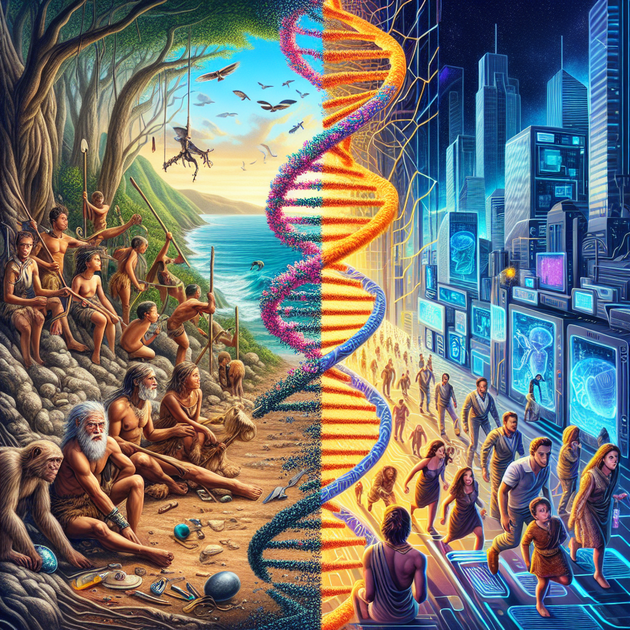Have you ever wondered if what makes us “human” has less to do with our DNA and more with the things we create and share? It turns out, some scientists now argue that when it comes to human evolution, culture is starting to outpace genetics—and that could change everything about how we understand ourselves.
Why Are Researchers Saying Culture May Matter More Than Genes?
For most of history, human evolution was thought to be all about slow genetic changes—random mutations passed down over thousands of generations. But now, researchers are pointing out something that seems almost obvious once you hear it: the way we live and adapt today often has little to do with the genes we’re born with.
Think about it. Our ancestors needed genes for thick fur or better eyesight to survive. But these days? We invent jackets and glasses instead. Cultural changes—like language, technology, education—spread incredibly fast compared to genetic mutations. This rapid pace means cultural shifts can influence who thrives (and how) much quicker than Darwin’s old-school natural selection.
How Does Culture Drive Human Evolution?
So how exactly does culture shape human evolution? Let’s break down a few ways:
- Changing environments: We modify our habitats (think air conditioning or skyscrapers), so survival isn’t just about biology anymore.
- Shared knowledge: Skills like reading or coding aren’t inherited—they’re learned and passed on through society.
- Social norms: What’s “normal” shifts quickly—everything from diet trends to family structures can change within a generation.
- Medical advances: Modern medicine helps people survive conditions that once would’ve been fatal before reproducing.
- Technology: From smartphones to CRISPR gene editing, our inventions can literally rewrite what it means to be human.
Each of these examples shows how cultural forces might overpower the slow march of genetics in shaping who we are—and who we’ll become.
A Real-Life Example: Glasses and Genes
Let me share a quick anecdote. I’ve worn glasses since I was twelve; without them, I’d probably struggle to survive if I were living in ancient times! In the past, poor eyesight could have meant not finding food or spotting danger—which meant those genes might not get passed on as much. Fast forward to modern life: glasses and contacts mean those of us with nearsightedness (a genetic trait) can thrive just fine. In this case, a simple cultural invention has changed which genes get passed along—a real-world example of culture overtaking genetics.
The Big Picture: What Does This Mean for Our Future?
If culture is overtaking genetics in shaping human evolution, what could this mean for us going forward?
– We may see even faster changes in society as ideas spread globally.
– Our definition of “fitness” (who survives and thrives) will keep shifting.
– Ethical questions around technology—from gene editing to AI—will become even more important.
– Diversity (in thinking, skills, backgrounds) might become an even bigger advantage than biological differences.
Some scientists argue that we’ve entered a new evolutionary era where memes (ideas) matter more than genes. It’s like humanity has hacked the system—we’re no longer just products of biology but creators of our own destiny through shared knowledge and innovation.
But is that entirely true? Are there limits to what culture can do compared to genetics? And will there ever be a balance between the two?
Is Culture Really Taking Over—Or Are We Missing Something?
It’s pretty wild to think that everything from TikTok trends to public health campaigns could shape humanity’s direction more than ancient DNA ever did. Yet some experts caution against writing off genetics completely; after all, biology still sets certain boundaries—for now.
Still, as the pace of change accelerates and cultural tools become more powerful (hello gene editing!), it feels like we’re witnessing something totally new in human history.
So here’s the big question for you: If you had to bet on what shapes humanity most over the next hundred years—our genes or our genius—where would you put your chips?
—

Leave a Reply